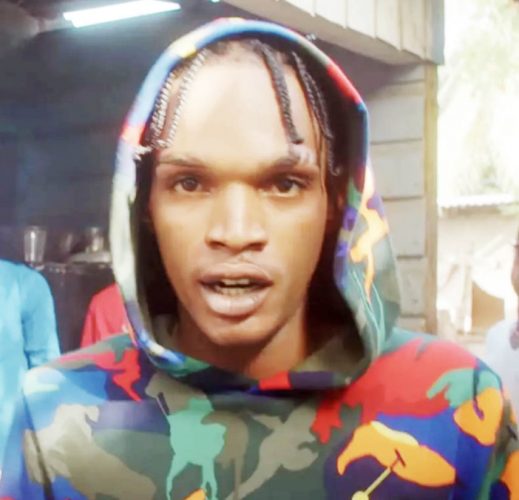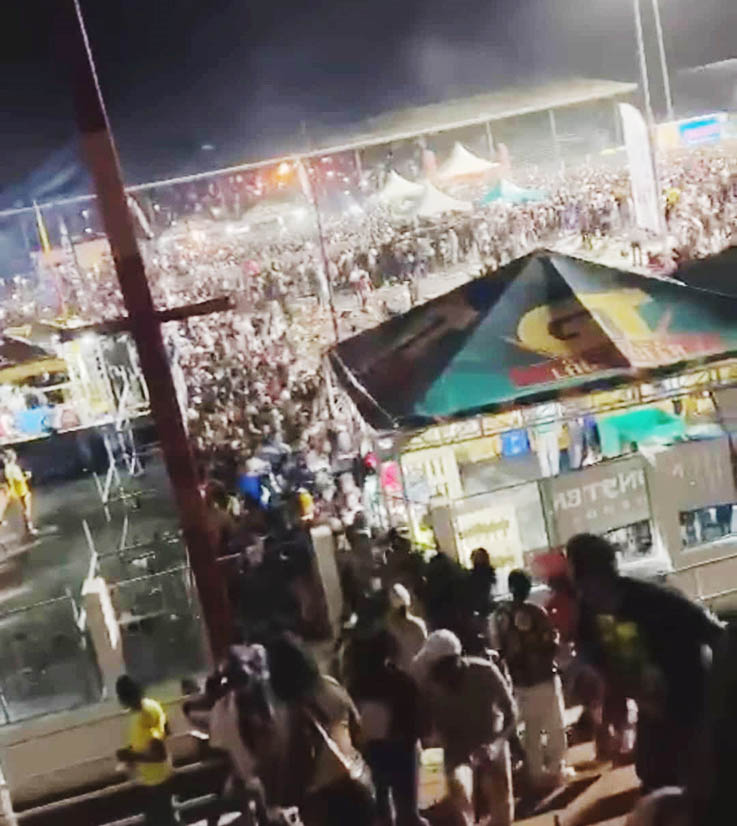With evidence that on-stage characterisation of gun-related violence is increasingly being used by promoters to popularise the ‘Dancehall’ genre of contemporary entertainment, the Jamaica Broadcasting Corporation (JBC) has moved to ban music which it deems to be “glorifying or promoting criminal activity, violence, drug use, scamming and weapons,” according to an October 13 Associated Press report.
While the Jamaican government is quoted as supporting the ban on the grounds that the content of such public performances “could give the wrong impression, that criminality is an accepted feature of Jamaican culture and society,” the decision has been criticized by artists on the grounds that it “cuts populations affected by heightened gun violence out of the conversation, and that it will do little to stop crime.”

Some analysts, however, see the issue as one of ‘money vs. morality’, but the authorities in Jamaica have, up to this time, reportedly shown no inclination to budge from its position on the grounds that its focus is on curbing what it considers to be the dangers associated with the indiscriminate discharge of firearms at public events in response to lyrics and gestures that seek to place emphasis on guns, gunplay, and terminal violence that is embedded in the lyrics of some ‘Dancehall’ music.
The “art imitates life” pushback to the JBC ban articulated by Jamaican Grammy Award Winner Stephen McGregor has been given short shrift by its critics who say that there is more than sufficient evidence that reference to guns and their frequent use as ‘props’ at ‘Dancehall’ events have been known to trigger a volatile environment at public events including.
In Jamaica the ban is seen in some quarters as a response to a protracted period of high levels of gun-related violence in that country, a propensity which, over time, has, to varying degrees, also affected other parts of the region, not least, Guyana. The Broadcasting Commission of Jamaica is reportedly on record as saying that music or video presentations that “normalize criminality among vulnerable and impressionable youth,” is unacceptable.
Moves to remove undertones of violence from Dancehall-type events in Jamaica and elsewhere in the Caribbean are however highly likely to encounter ‘pushback’ from the ‘commercial end’ of the Dancehall industry which has come to regard lyrics and ‘theatre’ that include images of gun-related violence as an important ‘money-spinner for the entertainment industry. These days, Guyana is considered to be a lucrative market for ‘performers’ by artistes from the region offering the ‘Dancehall’ genre. Back in May, fans were treated to a spinoff to such an event when a performance at the National Park named “Badderation” and headlined by the currently popular Jamaican artiste ‘Skeng’ (real name Kevaun Douglas), had to be terminated prematurely after his ‘offerings’ apparently prompted patrons to enthusiastically launch themselves into firing gunshots in the air.
For all the undoubted popularity of live ‘Dancehall’ shows’ in Guyana and elsewhere in the Caribbean and their frequently unseemly manifestations, performers of this genre of music are still believed to be largely left out of the vast majority of the “revenue streams in the industry, although the artists themselves make significant contributions to the “financial and cultural capital” of the industry, as a whole.
But artists like Stephen McGregor, known by his artist name Di GENIUS, said he viewed the ban as a free speech issue, and that the Jamaican government would be better served addressing root causes of violence like the pandemic-fueled economic crisis.
Whether the decision by the JBC to seek to rein in the ‘excesses’ of the Dancehall genre will be made to stick and whether, moreover, that decision will have a domino effect in Guyana, where ‘Dancehall’ has accumulated a huge following is as yet unclear. Already, however, there are signs of pushback from some high-profile performers in Jamaica to the decision, including one by a celebrated Jamaican Dancehall artiste – whose own music has been banned from airwaves throughout his career for making mentions of sex and guns, but who has been quoted as saying that those restrictions never really lasted.
Asked to comment on the recent decision by the JBC, a local entertainment promoter remarked. “Business is business. Dem ting nuh last.”






